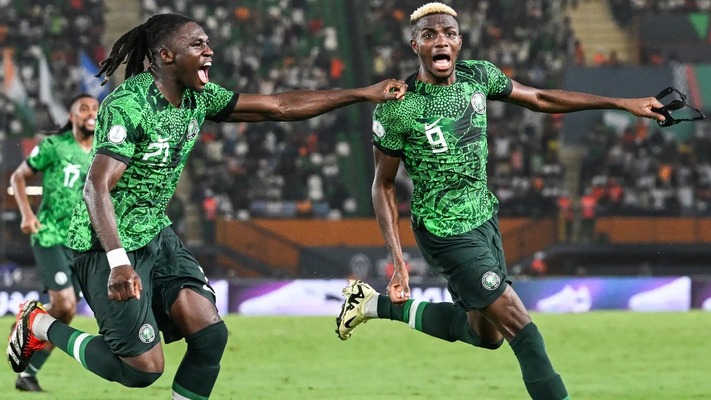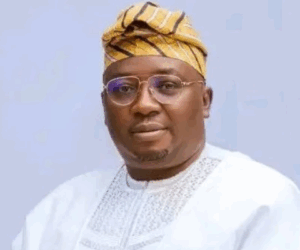There is nothing mysterious about Nigeria missing out on the World Cup. It is not bad luck, poor officiating, or an unlucky moment in a decisive match. It is simply what happens when we consistently waste, mismanage, and under-develop our talent. Football only made it visible. Long before the Super Eagles fell short, Nigeria had been rehearsing this defeat across other spectrums of the economy: classrooms, workplaces, laboratories, and others. The pitch merely reflected a much larger national truth: a country that refuses to deliberately nurture talent will inevitably fail on the field, in the economy, and in global competitiveness.
For decades, Nigeria has operated without a clear, deliberate pipeline for identifying, training, and optimising its talents. Whether in sports, health, technology, education, or governance, our national approach has been mostly reactive, short-term, and crisis-driven. We celebrate raw potential but fail to build the structures that turn potential into performance. That is why we consistently produce individual brilliance yet struggle with collective excellence. The same Nigeria that gave the world Victor Osimhen, Tobi Amusan, and Chimamanda Ngozi Adichie is the same Nigeria that cannot organise a seamless national league, fund research, or align education with industry needs. Our problem is not the absence of talent; it is the absence of a system.
The collapse of the Super Eagles’ World Cup dream is not an isolated failure; it is a symptom of a deeper, nationwide talent disorder. We have no comprehensive youth football development pipeline, no well-funded community sports programmes, no coordinated scouting system that reaches beyond major cities, and no long-term coaching strategy that prioritises continuity and excellence. When leadership changes with every tournament, when merit is questioned, and when development academies are inconsistent, the outcome is predictable instability, frustration, and underperformance.
This same pattern plays out across our broader human capital landscape. In health, our best-trained professionals leave because the environment does not value their expertise. In technology, brilliant young innovators fund their own growth because national support structures are not consistent. In governance, succession planning is treated as an afterthought rather than a strategic necessity. When the talent ecosystem is weak, every sector becomes vulnerable to predictable failure.
In short, we are blessed with talent but weak with management, and the consequences are now catching up with us in every index: unemployment, brain drain, declining productivity, falling competitiveness, and now, a missed World Cup. The lesson is clear: nations do not win even in sports by chance. They win by design, strategy, investment, and continuity. They win when their people are given the tools, training, and environment needed to excel. That is the case with Algeria, Egypt, Morocco, Senegal, South Africa, Tunisia and others that have picked their tickets to the 2026 World Cup.
The danger is that if nothing changes, this pattern of defeat will not remain confined to football. We may continue to lose investments to more organised African countries. We may continue to lose our brightest minds to Canada, the UK, and Europe. We may continue to miss economic opportunities simply because we lack the human capacity to seize them. A nation that mismanages talent is a nation preparing itself for future disappointments.
To reverse this trajectory, Nigeria must begin with a national talent strategy, a deliberate, structured, and well-funded roadmap for developing people. Football federations need grassroots academies, a long-term coaching strategy, and leadership stability. Schools need modern curricula and partnerships with industry. All the 36 states in Nigeria need to develop clarity on talent clusters where they hold a comparative advantage and how to train people accordingly. Companies must invest in apprenticeships, mentorship, and on-the-job learning. Above all, we need to embrace what successful nations already understand: ‘talent’ is an economic asset, not a passive word.
If we do not rethink our talent system, defeat will continue to be predictable, on the pitch and beyond it. This missed World Cup should not only make us sad; it should make us reflect. Because every national failure is rooted in a deeper systemic issue that has been ignored for too long. And until Nigeria decides to treat talent as seriously as it treats politics, we will keep repeating this cycle.
Nations that win globally are nations that invest. Nations that grow intentionally are nations that plan. Nations that succeed against all odds are nations that believe that their people, not oil, not luck, not history, are their greatest competitive advantage. Nigeria still has time to change this story. But time will not wait forever.
Beyond this emotional disappointment, Nigeria’s absence from the World Cup also carries a heavy reputational and economic cost on the global stage. The World Cup is more than a football tournament; it is one of the world’s largest platforms for national visibility, sports diplomacy, and brand perception. Countries like Morocco and Senegal are leveraging consistent World Cup participation to strengthen global partnerships, attract investors, and promote their talent pipelines. Imagine, ten African countries should be at the 2026 World Cup, and the Lion of Africa is not amongst them! This is sad.
The Super Eagles were once a symbol of African excellence. They were vibrant, competitive, and globally respected in the world of football. Today, that spotlight has shifted elsewhere, leaving Nigeria outside the frame of global sports relevance. This is not just a football loss; it is a national branding setback, one that further confirms how talent mismanagement quietly erodes a country’s global standing.
About the writer:
Deborah Yemi-Oladayo is the Managing Director of Proten International, a leading HR consulting firm in Nigeria, specialising in talent development, recruitment, and HR advisory services. Email: [email protected]









